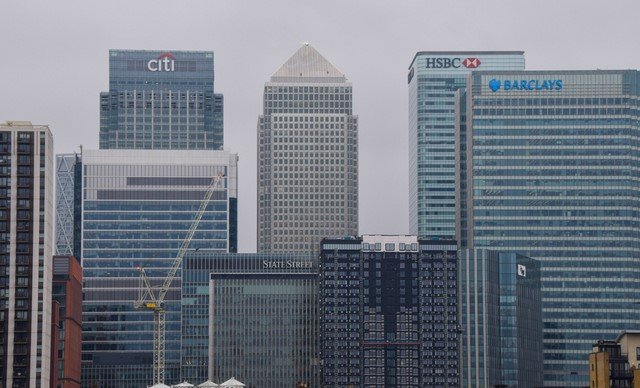Commerce Commission finds no evidence that ANZ, ASB, BNZ, Westpac and Rabobank colluded over climate-linked agricultural lending
New Zealand’s top competition regulator has shut the door on claims that the country’s largest lenders were acting like a cartel when tying farm loans to climate goals.
In a closely watched decision, the Commerce Commission said Monday that it found no evidence that ANZ, ASB, BNZ, Westpac, and Rabobank had unlawfully coordinated lending policies under the Net-Zero Banking Alliance. That ruling ends a complaint brought by lobby group Federated Farmers, which had argued the five banks were squeezing rural borrowers through a form of climate-aligned collusion.
“We thoroughly investigated the complaint and concluded that the banks had made their own, independent decisions,” said Vanessa Horne, general manager of competition at the Commission.
Farmers felt cornered
The dispute dates back several months, when Federated Farmers formally accused the banks of acting in concert. The allegation? That the five lenders were jointly implementing environmental lending conditions — such as emissions reductions and climate risk disclosures — that, in effect, reduced access to capital for traditional farming operations.
And since those five banks control roughly 97% of all agricultural lending in New Zealand, the complaint wasn’t just symbolic. Farmers feared they were being boxed in.

“For many farmers, these sustainability-linked terms felt less like an option and more like a requirement,” said one Waikato dairy farmer, who asked not to be named. “You either sign up to climate targets or risk losing access to funding. That’s a big hammer to hold over our heads.”
Regulator: no smoking gun, no collusion
But after several months of digging — including document reviews, interviews, and a close look at the banks’ climate programs — the Commerce Commission saw no sign of coordination or collusion.
In short: Each bank signed onto the Net-Zero Banking Alliance on its own. Each made its own climate-lending decisions.
“There was no evidence of unlawful co-ordination between the banks or with the Net-Zero Banking Alliance,” Horne said.
That’s a key legal threshold. Under the Commerce Act, agreements between competitors that substantially lessen competition or fix prices are prohibited. But shared membership in an international climate framework — on its own — isn’t enough to trigger a violation.
Climate lending isn’t new — but it’s evolving
The Net-Zero Banking Alliance (NZBA), launched by the UN in 2021, now includes over 140 banks globally, all pledging to align their lending and investment portfolios with the goal of net-zero emissions by 2050.
In practice, that often means:
-
Pressure on high-emitting industries, including agriculture, to reduce climate risk
-
Linking loan terms to emissions tracking or reduction progress
-
Collecting more granular data from borrowers about sustainability practices
While these moves aren’t new globally, they’ve started showing up more frequently in rural New Zealand, often catching farmers off guard.
“I was asked for my emissions profile before I could refinance a feedlot,” said one South Island farmer. “It’s not something we’ve dealt with before.”
Banks say they’re acting responsibly
The banks have defended their approach, saying climate risk is now a core financial risk — and they’re managing portfolios accordingly.
ANZ, which holds the largest agricultural loan book in the country, said it’s working with rural clients to adapt rather than alienate.
“We’re committed to supporting farmers through the climate transition,” a bank spokesperson said. “That includes providing tools, advice, and in some cases, incentives to lower emissions.”
Rabobank, with its global agri-focus, noted that emissions disclosure doesn’t mean credit denial.
“There’s a misconception that climate-linked lending is punitive. That’s not what we’re doing,” said one Rabobank exec.
Federated Farmers not backing down
Despite the regulator’s decision, Federated Farmers says it remains concerned about the direction of climate finance in agriculture.
Their president, Wayne Langford, said the group will now focus on advocacy and education.
“We respect the Commission’s findings, but the issue isn’t going away,” he said. “Our members are telling us the pressure is real. That won’t change just because there was no formal cartel.”
One policy adviser noted that the ruling may close the legal door, but not the political one. “This will now become a question for Parliament, not the courts.”
Is there a policy gap?
Some experts say the case highlights a gray area — where sustainability goals overlap with market dynamics, but don’t fit neatly into existing competition law.
One financial lawyer put it this way: “You’ve got a situation where global climate commitments are influencing local lending, but there’s no direct price-fixing or collusion. So technically, it’s legal — but politically, it’s still fraught.”
And that friction isn’t going away. As more financial institutions align with global ESG frameworks, these kinds of tensions could escalate.
A few questions remain:
-
Should there be clearer guidelines for sustainability-linked lending?
-
How much climate conditioning is too much?
-
Should rural sectors get transitional support?
For now, the regulator is stepping back. But the debate is likely just getting started.








